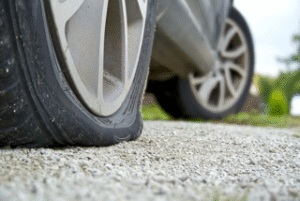
5 Key Things Every Car Owner Needs to Know

Owning a car comes with responsibilities beyond just filling up the tank and driving. A well-maintained vehicle runs more efficiently, lasts longer, and helps you avoid unexpected breakdowns. Whether you’re a new driver or a seasoned car owner, understanding the basics of vehicle care can save you money and frustration in the long run.
Here are five essential things every car owner should know.
1. Regular Maintenance Saves Money for Car Owners
Routine maintenance might seem like an inconvenience, but it helps prevent expensive repairs down the line. Key areas to focus on include:
-
Oil Changes – Fresh oil keeps your engine lubricated and running smoothly. Aim to change it every six months or as recommended by your vehicle’s manufacturer.
-
Brake Inspections – Squeaking or reduced braking power could signal worn brake pads. Addressing the issue early can prevent costly damage to your braking system.
-
Tyre Care – Check tyre pressure and tread depth regularly to ensure safe handling and fuel efficiency. Underinflated tyres wear out faster and increase fuel consumption.
-
Battery Health – Weak batteries often fail without warning, especially in extreme weather. Get your battery tested periodically to avoid being stranded.
Investing in routine checks and minor repairs helps keep your car in top condition while preventing more serious problems.

2. How to Check Your Fluids
Your car relies on several essential fluids to function properly. Learning to check and maintain them can help you spot potential issues before they escalate.
-
Engine Oil – Use the dipstick to check the oil level and condition. If the oil looks dirty or low, it’s time for a change.
-
Coolant – Ensures your engine doesn’t overheat. Check the coolant reservoir regularly and top it up if needed.
-
Brake Fluid – Vital for safe braking. If your brake pedal feels soft, it could indicate low or contaminated brake fluid.
-
Transmission Fluid – Helps your transmission shift smoothly. Low or burnt-smelling fluid may signal a problem.
-
Windscreen Washer Fluid – Essential for clear visibility. Keeping it topped up ensures you can clean your windscreen when needed.
Knowing how to check and refill these fluids can prevent mechanical failures and keep your car running efficiently.
3. Understanding Warning Lights
Dashboard warning lights alert you to potential problems, but many drivers ignore them until it’s too late. Some of the most important warning lights to watch for include:
-
Check Engine Light – Can indicate anything from a loose fuel cap to a serious engine issue. If it stays on, have it diagnosed as soon as possible.
-
Battery Light – Suggests a charging system problem, often related to the battery or alternator.
-
Oil Pressure Light – Indicates low oil pressure, which can lead to severe engine damage. Stop driving and check your oil levels immediately.
-
Brake Warning Light – Could signal worn brake pads, low brake fluid, or a more serious braking system issue.
-
Coolant Temperature Warning – If this light comes on, your engine may be overheating. Pull over and allow it to cool before checking the coolant level.
Understanding these warning signals can help you take action before minor issues turn into costly repairs.
4. The Importance of Tyre Maintenance
Your tyres are the only point of contact between your car and the road, making them one of the most crucial components for safety and performance.
-
Check Tyre Pressure – Underinflated tyres can lead to poor fuel economy and uneven wear. Use a pressure gauge to ensure they are inflated to the recommended PSI.
-
Inspect Tread Depth – Worn tyres reduce traction, especially in wet conditions. Replace tyres when tread depth is below 1.6mm.
-
Wheel Alignment and Balancing – Misaligned wheels can cause uneven tyre wear and affect handling. If your car pulls to one side, it might need an alignment.
-
Rotate Tyres Regularly – Rotating tyres every 10,000 km promotes even wear and extends their lifespan.
Proper tyre care not only improves safety but also enhances fuel efficiency and driving comfort.
5. What to Do in an Emergency
Knowing how to handle common roadside emergencies can make a big difference in stressful situations.
-
Flat Tyre – Learn how to use your spare tyre and jack. If you don’t have a spare, consider carrying a tyre repair kit or sealant.
-
Dead Battery – Keep a set of jumper cables in your car and know how to use them safely.
-
Overheating Engine – If your temperature gauge rises, pull over and turn off the engine. Let it cool before checking the coolant level.
-
Brake Failure – If your brakes fail, downshift to a lower gear, pump the brake pedal, and use the handbrake to slow down.
-
Breakdown Safety – If your car breaks down, move it to a safe location, turn on hazard lights, and use warning triangles if available. Call for roadside assistance if needed.
Being prepared for these situations can help you stay safe and reduce the stress of unexpected breakdowns.
Owning a car involves more than just driving—it requires regular maintenance and a basic understanding of how your vehicle works. By keeping up with routine checks, understanding warning signs, and knowing what to do in an emergency, you can ensure your car remains reliable and safe on the road.
If you need expert advice, repairs, or routine maintenance, Sandgate Auto Electrics is here to help. Our experienced team offers professional service to keep your car running smoothly.
📞 Phone: 3869 3158
📧 Email: mail@sandgateautoelectrics.com.au
📍 Address: 101 Connaught Street, Sandgate, QLD, 4017
🌐 Website: www.sandgateautoelectrics.com.au/
Book a service today and drive with confidence! 🚗🔧
Useful Resources:


25 Pre-Holiday 4WD Check for Safe Towing and Adventure

